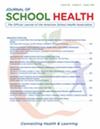The ubiquitous use of social media places adolescents at high risk for cyberincivility (disrespectful, insensitive, or disruptive online behaviors). Adolescents who experience cyberincivility can have mental health issues including depression and suicidal ideation. However, no reviews synthesized findings from qualitative studies on cyberincivility among adolescents, which was the aim of this review.
Eleven articles were extracted from MEDLINE, Embase, PsycINFO, ERIC, and Education Full Text. Study qualities were assessed using the JBI Critical Appraisal Checklist. A meta-ethnographic framework guided the thematic analysis.
Five themes were identified: forms of cyberincivility, platforms used for cyberincivility, perceptions and understanding of cyberincivility, adverse impact on health, and perceptions of seeking support. Social media was often used for cyberincivility, and common forms of cyberincivility included impersonation, aggressive verbal behaviors, and social exclusion. Adolescents perceived cyberincivility as persistent and relentless, with severe health impacts including depression, but they hesitate to seek support.
Considering the negative impact of cyberincivility on adolescents' physical and mental well-being, it is important to develop anti-cyberincivility programs in schools. Schools have opportunities to efficiently reach both perpetrators and victims of cyberincivility with anti-cyberincivility programs rooted in trust building and engagement from family, community, and peers.


